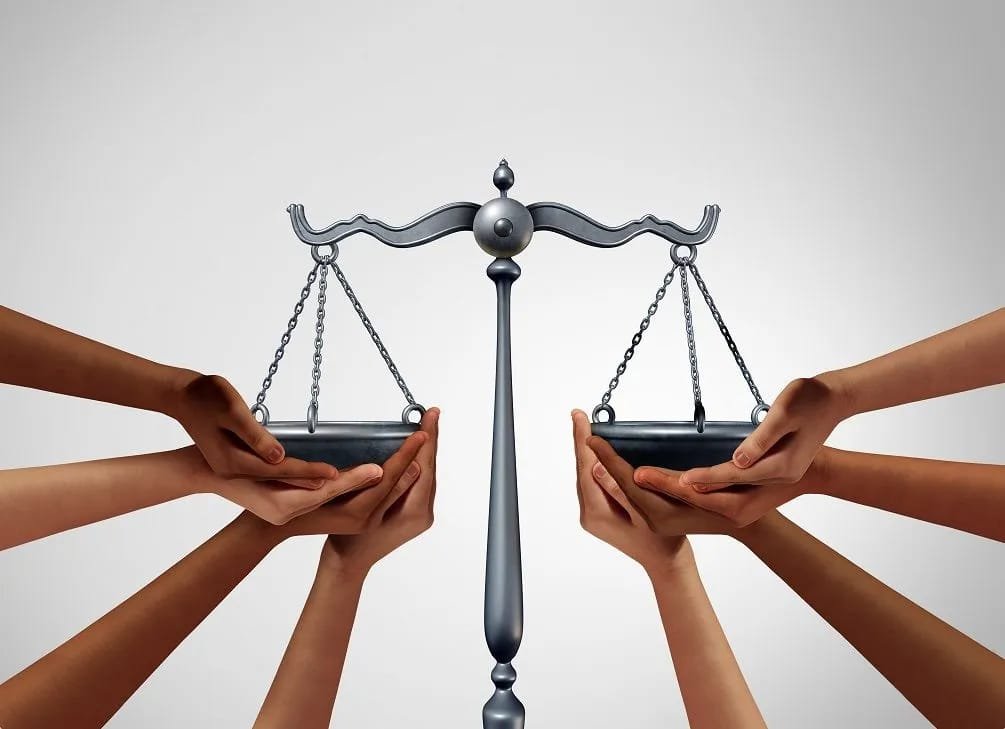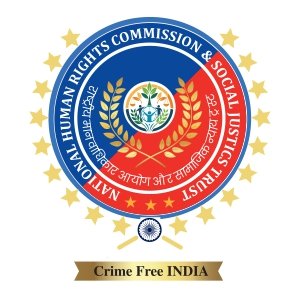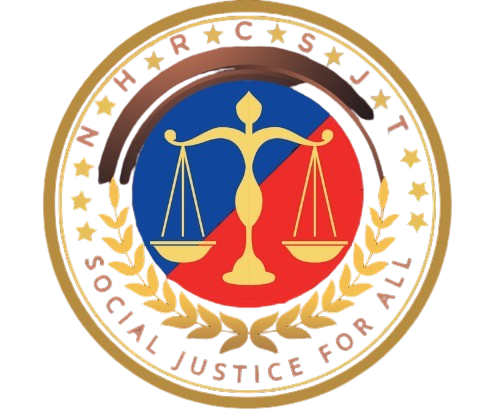Constitution
Constitution
We, the defenders and promoters of human rights and the Rule of Law, solemnly resolve and affirm the following principles:
Equality and Dignity: All human beings are born free and equal in dignity and rights. Endowed with reason and conscience, they should act towards one another in a spirit of universal brotherhood.
Universal Rights: Everyone is entitled to the rights and freedoms set forth in the Universal Declaration of Human Rights, the UN Declaration on the Protection of All Persons from Degrading Treatment or Punishment, and the International Covenant on Civil and Political Rights.
Right to Life and Liberty: Every individual has the right to life, liberty, and personal security. No one shall be held in slavery, servitude, or arbitrarily deprived of their property.
Freedom from Torture: No one shall be subjected to torture, cruel, inhuman, or degrading treatment, or punishment. Arbitrary arrest or detention is prohibited.
Equality Before the Law: Everyone has the right to equality and equal protection under the law.
Presumption of Innocence: Anyone charged with a criminal offense has the right to be presumed innocent until proven guilty according to law, in a public trial with all necessary defenses as per internationally recognized norms and standards.
Protection Against Arbitrary Interference: No one shall be subjected to arbitrary interference with their privacy, family, home, or correspondence, nor to attacks upon their honor and reputation. Everyone has the right to legal protection against such interference or attacks.
Freedom of Expression: Every person has the right to freedom of expression, conscience, religion, and the freedom to form associations and participate in peaceful assemblies.
Self-Determination: All peoples have the right to self-determination, allowing them to freely determine their political status and pursue their social, economic, and cultural development, as stipulated in the UN Charter on Human Rights.
Aims and Objectives
National Human Rights commission and Social Justice Trust is dedicated to defending and promoting human rights, social justice, and democratic values across all aspects of life—social, economic, and political. As a non-partisan, non-governmental organization, NHRCSJ strives to guide public opinion by advocating rational and constructive views on human rights, with a commitment to the people and victims of state oppression. National Human Rights commission and Social Justice Trust efforts include:
Defending Human Rights: Mobilizing public opinion to defend the human rights of all nationalities, especially those struggling for self-determination.
Child Labor and Poverty Alleviation: Taking a stand against child labor and the humiliation of impoverished individuals.
Health Awareness: Promoting health awareness in society and establishing connections with healthcare entities.
Socio-Economic and Political Change: Advocating for structural changes that fulfill the socio-economic and political aspirations of all nationalities, while ensuring the protection of their ethnic, religious, and cultural identities.
Combating Discrimination: Securing recognition of the principles of universal brotherhood, socio-economic and political justice, and individual dignity. National Human Rights commission and Social Justice Trust is committed to combating racism, casteism, communalism, and other forms of discrimination, including dowry, bride burning, and Sati (immolation).
Public Education: Educating people about their fundamental rights, civil liberties, and democratic values by organizing seminars to raise and awaken public consciousness.
Supporting Struggles for Identity: Supporting groups fighting to defend their religious, cultural, linguistic, and ethnic identities against oppression by ruling classes.
Countering Misinformation: Understanding national and international issues in their depth and complexity, and countering misinformation and false propaganda against marginalized communities.
International Collaboration: Establishing local and overseas chapters and liaising with national and international organizations with similar missions.
Judicial Independence: Striving for the independence and impartiality of the judiciary, freedom of the press, and other mass media.
Opposing Draconian Laws: Mobilizing public opinion against draconian measures and black laws to secure the rule of law, according to internationally established norms and standards.
Right to Information: Advocating for the right to access information.
Ongoing Advocacy: Engaging in activities that support and advance the organization’s objectives.
Finance
National Human Rights commission and Social Justice Trust funds its activities through membership fees and donations. The organization does not accept donations from the government, political parties, or their representatives. All funds are received against official National Human Rights commission and Social Justice Trust receipts and are audited annually. These audited reports are open to inspection by members.
Organizational Structure
Central Committee: The Central Committee is the main governing body of National Human Rights commission and Social Justice Trust, meeting annually to appoint the Core Group. It consists of no fewer than seven members elected at the annual meeting, including all state heads of National Human Rights commission and Social Justice Trust.
Core Group: The Core Group is responsible for fulfilling the organization’s objectives and executing the mandate set by the Central Committee. This group comprises no fewer than eleven members.
Social justice

What is Social Justice?
Social justice refers to a political and philosophical theory that emphasizes fairness in the relationships between individuals within a society. It ensures equal access to wealth, opportunities, and social privileges. This concept advocates for a fair distribution of resources and equal treatment, aiming to create an equitable society for all.
History and Evolution of Social Justice
The origins of social justice date back to the 19th century, during the Industrial Revolution, when growing economic inequality led to efforts aimed at creating more egalitarian societies. In its early stages, the movement primarily focused on distributing wealth, property, and capital to address economic disparities caused by rigid social class structures in Europe.
Over time, social justice evolved to encompass broader issues, focusing more on human rights and the wellbeing of marginalized and disadvantaged communities. These groups have historically been discriminated against due to various factors such as gender, age, ethnicity, religion, social status, and economic background. Modern social justice efforts now aim to empower these communities through initiatives that provide income support, jobs, education, and legal protections.
Social Justice and the Government
While social justice movements are often driven by activists and civil society, implementation largely depends on governments, non-profits, and administrative bodies. These institutions are responsible for crafting policies that address social injustices and promote fairness across communities. Political ideology plays a significant role in determining how social justice is prioritized and applied through public policy.
Governments may implement social justice through wealth redistribution, employment laws, educational programs, and targeted subsidies. In some countries, such as those with socialist or left-leaning ideologies, social justice principles are integrated more deeply into national economic and legal frameworks.
Five Principles of Social Justice
1. Access to Resources
This principle refers to the fair distribution of resources like healthcare, education, housing, and food. In many societies, individuals from wealthier backgrounds have greater access to these services, which leads to better opportunities and upward mobility. In contrast, those from underprivileged backgrounds face systemic disadvantages that perpetuate cycles of poverty and exclusion.
2. Equity
Equity differs from equality in that it involves providing people with the resources they specifically need to succeed, rather than giving everyone the same resources. Equity acknowledges that individuals face different challenges, and so support systems must be tailored to ensure everyone can reach similar outcomes. Policies that address systemic inequalities aim to promote equity over simple equality.
3. Participation
Participation means ensuring everyone has a voice in decision-making processes that affect their lives. True social justice cannot exist if decisions are made only by a privileged few. It is important that all individuals, especially those from marginalized communities, have the opportunity to express their concerns and contribute to shaping the policies that affect them.
4. Diversity
Diversity emphasizes the recognition and respect of differences across cultures, identities, and backgrounds. By understanding the unique challenges faced by different groups, policymakers can design inclusive policies that better meet the needs of a diverse population. Preventing discrimination in employment, education, and other areas is essential to fostering a just society.
5. Human Rights
At the heart of social justice lies the principle of human rights. These include civil, political, economic, social, and cultural rights that must be respected and protected by all. Social justice and human rights are deeply interconnected, and upholding one reinforces the other. International institutions such as the United Nations and the International Criminal Court work to ensure that human rights are recognized and enforced globally.

